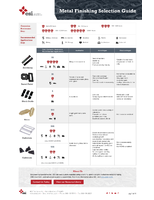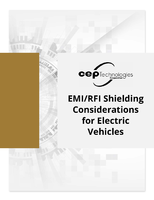Hella Chooses Vectra® LCP for Key Element in New Auto Climate Sensors
Sensor Expo, Rosemont, Ill., June 12, 2007 - Hella, a major automotive supplier based in Lippstadt, Germany, has adopted Vectra® liquid crystal polymer (LCP) from Ticona, the engineering polymers business of Celanese Corporation, for the core mechanical component in its new generation of sunlight and ambient light sensors for auto air conditioning systems.
This element is made using two-component (2C) injection molding and molded interconnect device technology (3D-MID), which provide a cost-efficient process for fabricating LCP that minimizes faults and offers the flexibility to create different configurations. These processes also create the high precision needed in these small parts to ensures fine adjustment of vehicle cabin climate using temperature and light values.
To start, metallizable Vectra® E820iPd and Vectra® E130i are molded by 2C injection molding. Conductor tracks are then added to the part in a currentless, wet-chemical metallization process. The application-specific integrated circuits (ASICS) integrate the optically sensitive element and its associated electronic circuitry.
Integrating conductor tracks in the part allows for cost-efficient serial manufacture and makes 3-D component insertion possible, which reduces assembly costs. The combined production method allows the processor, Harting Mitronics AG, Biel (a member of the Harting Group), to produce many configurations and integrate additional component functions in a short time without significant additional development cost.
Vectra LCP is well suited for sensor components. Its high flowability allows it to fill long, complex flow paths in molding and create thin-walled parts having outstanding dimensional accuracy, both of which are essential in creating high-precision MIDs and conductor patterns. The polymer also gives electronic component manufacturers excellent dimensional stability and a low coefficient of thermal expansion, so they can consistently obtain dimensionally accurate and virtually flash-free parts at an economical cost.
The injection molding of three-dimensional circuit carriers (MIDs or molded interconnect devices) and subsequent metallization integrates mechanical and electronic functions in a plastic component and yields circuit layouts having a high degree of design freedom. Circuit patterns are placed on the parts in various post-molding steps that selec-tively metallize the parts. This approach has become firmly established in the industry.
Circuits can also be structured on MIDs by laser. In laser direct structuring, two Vectra grades (one with a modified surface that is metallizable and the other that is non-metallizable) are injection molded as a single part. A computer-controlled laser beam travels over the component, activating the plastic surface where the conductor tracks are to be in just seconds. The conductor pattern is plated with several metal layers. This process often uses Vectra E130i and E820iPd, although the latter can be combined with other engineering polymers, such as polyphenylene sulfide. Vectra LCP allows for conductor track width and interspacing down to 0.25 mm.
For more information
For more information on Vectra LCP for use in sensors, contact: Ticona, 8040 Dixie Highway, Florence, KY 41042, USA. Phone: 1-800-833-4882. Email: prodinfo@ticona.com. In Europe: Ticona GmbH, Professor-Staudinger-Straße, D-65451 Kelsterbach, Germany. Phone: +49-(0)180-584-2662 (DE) or +49-(0)693-051-6299 (EU). Email: infoservice@ticona.de. Or visit: www.ticona.com.
About the HARTING Technology Group
The HARTING Technology Group has expertise in electrical, electronic and optical connection, transmission and networking, as well as in manufacturing, mechatronics and software creation. The Group develops customized solutions and products, such as connectors for energy and data transmission, in areas that include mechanical engineering, railroad technology, wind energy, factory automation and telecommunications. It also produces electromagnetic components for the automotive industry and specializes in industrial applications such as enclosures, housings, cabling, the assembly of individual or complete systems, and automated vending machines. In the 2005/2006 business year, it employed an average of 2400 people and had sales of 313 million euros.
About Ticona and Celanese
Ticona, the engineering polymers business of Celanese Corporation, produces and markets a broad range of high performance products , and achieved net sales of $915 million in 2006. Ticona employs approximately 2,000 individuals at production, compounding and research facilities in the USA, Germany and Brazil. For more information, please visit www.ticona.com.
As a global leader in the chemicals industry, Celanese Corporation makes products essential to everyday living. Our products, found in consumer and industrial applications, are manufactured in North America, Europe and Asia. Net sales totaled $6.7 billion in 2006, with over 60% generated outside of North America. Known for operational excellence and execution of its business strategies, Celanese delivers value to customers around the globe with innovations and best-in-class technologies. Based in Dallas, Texas, the company employs approximately 8,900 employees worldwide. For more information on Celanese Corporation, please visit the company's website at www.celanese.com.
All registered trademarks are owned by Ticona or its affiliates.




